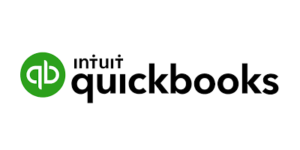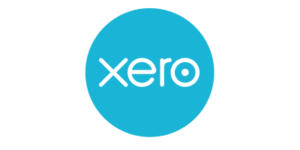Which cloud accounting software is best for me?
Accountancy software has historically been clunky, costly, and primarily designed for large businesses. However, these days there are an increasing number of cloud-based platforms, most of which are specifically designed for small businesses.
Rather than making you fork out hundreds of pounds up front, and the same again for the annual upgrades, these new platforms are available for a few pounds per month. What’s more, updates are continuously rolled out so you’ll always have the latest version.
Rather than just being standalone software that requires you to enter all your data manually, the new platforms save you time by pulling in your daily bank transactions automatically. Plus they help you comply with HMRC’s Making Tax Digital initiative. It’s already mandatory for most VAT registered businesses to submit their accounts digitally, and this will be extended to other businesses soon.
But, from the increasing number of options out there, which one is right for your specific business? Here’s what you need to know …
The benefits
‘Cloud-based’ means the software operates in ‘the cloud’ – the tech term for online space you can access at any time from any device connected to the Internet. This makes the new platforms highly convenient.
The leading packages make it easy to manage your finances. They’re built for small business owners, not accountants, so they’re intuitive, easy to use, and can help you identify common errors such as overpaying HMRC. In fact, some even estimate your tax calculations to help you plan in advance until your accountant finalises the amount you need to pay.
Because some of the more time-consuming tasks can be automated, you’re free to do what you do best – running your business – rather than being bogged down in admin. Most platforms also include handy reporting tools too, so you can monitor cash flow and profitability at a glance and make informed strategic decisions.
Is now the time to change?
In a word, yes. Until last year it was up to you how you kept your accounting records, but HMRC’s Making Tax Digital (MTD) has changed this: since April 2019, VAT registered businesses above the VAT registration threshold have been required to keep and submit digital records. Over the next few years, MTD will be widened to include most other taxes too; therefore it makes sense to make the switch asap.
But the new requirements aren’t the only reason to switch now. Online platforms are developing all the time, refining the experience, and adding new easy to use features that add value for your business. They really leave old-fashioned spreadsheets and manual cashbooks behind.
Additional apps are also appearing all the time. These are designed to complement the accounting software, offering greater automation and even deeper insights. Businesses with a cloud-based platform will find it much easier and cheaper to roll these out than businesses relying on traditional desktop software.
Which platform is best for you?
Most packages offer similar features like invoicing, income and expense tracking, bank reconciliation, and financial reporting. However, there are subtle differences between the options including cost and usability.
Here are our thoughts on three of the most popular platforms.
One of the most visible brands on the market, QuickBooks has the budget to spend the most on marketing, but does it live up to the hype?
The entry option for companies costs just £12 + VAT per month, and unlike some other entry packages you aren’t limited to the number of transactions you can enter. It also includes a VAT checker that picks up common mistakes.
You’ll see a concise, easy to understand summary page of your business’s performance and find everything easy to customise. If you have a foreign currency account, you don’t need to select their top package to use this feature.
However, there are drawbacks. QuickBooks is tricky to navigate, there’s a steep learning curve, and customer support isn’t great. Features such as project profitability, budgeting and stock control are only available on the top option. And payroll is only available as an extra charge bolt-on.
Find out more: quickbooks.intuit.com/uk/
Xero is a solid option. It won the 2019 Accountancy Software Provider Of The Year at the British Business Awards, and has a huge choice of third party apps and add-ons to further enhance its offering.
It has all the functionality you would expect, making it easy to reconcile the bank from automatic bank feeds, track your expenses, create and send your sales invoices, and store digital images of your purchase invoices.
Overall Xero has few weaknesses. Its starter option is good value for micro businesses at £10 + VAT per month, all options include the ability to automatically record your purchase invoices and receipts, and the ever-increasing list of connected apps mean you can create a package whatever your requirements.
However, the low-cost starter option really restricts the number of transactions allowed. Additional functionality, such as payroll and CIS filing, is only available as a bolt-on cost. Finally, there’s no telephone support from Xero directly – although you can always phone us as we’re a certified Xero Partner.
Find out more: www.xero.com/uk/
FreeAgent, which is owned by Bank of Scotland/NatWest, is fantastic for smaller businesses and freelancers. It keeps everything simple and does what it needs to do without over-complicating things with superfluous features. The focus is on invoicing, time tracking, and managing expenses – all the things that make smaller operations tick.
There’s also a corporation tax estimator to help with your cash planning, bank feeds and a simple reconciliation process, payroll functionality included in the subscription cost, plus an easily navigable dashboard that displays your cashflow position.
The main downside is that FreeAgent’s inventory management features are not the strongest of the three, and our view is that it’s best suited to service-based businesses. The simplicity is great for small businesses but it may fall short on functionality for some larger or more complex businesses.
FreeAgent is also relatively expensive at £19 + VAT per month for sole traders and £29 + VAT per month for companies. However, BoS and NatWest will waive the subscription for their business account holders, giving you complete access free of charge.
Find out more: www.freeagent.com
What about your accountant?
Cloud-based platforms are a fantastic way to stay in touch and in control of your finances. But they will never replace your accountant. Rather they’re a whole new way for accountants to work with you.
New technologies allow accountants to access your information faster, gain additional insights, and ultimately provide invaluable advice to help you make your business more profitable.
We see how cloud accounting can streamline and invigorate businesses every day. Our team have introduced a large proportion of our client base to cloud accounting, and the feedback we’ve received has been overwhelmingly positive.
Making that change
Although embracing a cloud-based platform might seem like big change, we’re here to support you. We can recommend the most appropriate package, set you up for free, provide a free hour’s initial training, and then give you on-going support. Our staff are highly trained in the various packages, and we’re both a FreeAgent and Xero Partner. We may also be able to offer you a discounted subscription.
But what about the original question: which platform is best for you?
Ours, and more importantly our clients’, experience tells us that FreeAgent is best for smaller businesses. It’s functional, user-friendly, and perfect for freelancers invoicing billable hours.
If you’re a larger or more complex business then Xero or QuickBooks is more likely to suit. However, we believe Xero has the clear edge in terms of functionality, user experience, and the huge range of add-on apps.
If you’re not currently using a cloud accounting package, or if you’ve got one but are struggling to harness its full potential, please don’t hesitate to get in touch. Our team are always ready to help.
Tony Burgoyne
All prices given above were accurate as of 24th April 2020.



